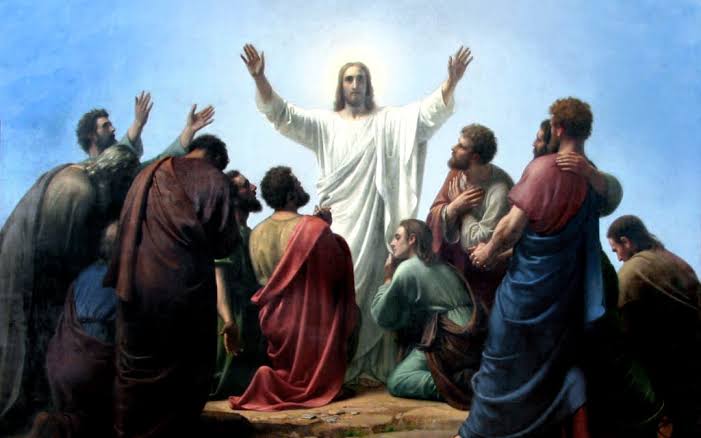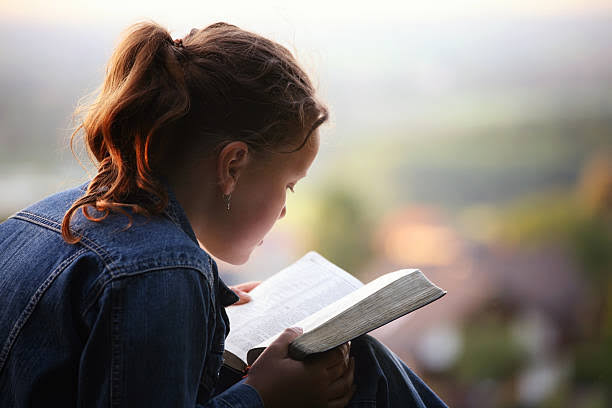
The ancient history of Judah is replete with kings who either led their people toward faithful adherence to the covenant with Yahweh or plunged them into deeper idolatry. Among these rulers, King Josiah stands out as a unique figure, whose reign was marked by an extraordinary commitment to spiritual purity and a sweeping religious reformation. His story, primarily chronicled in 2 Kings 22 and 23:1-30, offers a compelling account of national repentance, the power of divine law, and the challenges of societal transformation.
Judah’s Spiritual Decline and Josiah’s Early Reign
Before delving into the specifics of Josiah’s reform, it is crucial to understand the spiritual climate of Judah that preceded his rule. His grandfather, Manasseh, had been one of Judah’s most wicked kings, reintroducing pagan practices, building altars to Baal and Asherah in the Temple itself, practicing divination, and even sacrificing his own children. Manasseh’s son, Amon, continued these idolatrous traditions. Thus, when eight-year-old Josiah ascended the throne in 640 BCE, Judah was steeped in polytheism, syncretism, and spiritual decay. Despite this pervasive environment of apostasy, the biblical narrative highlights Josiah’s innate righteousness, stating that “he did what was right in the eyes of the Lord and walked in all the ways of his father David, not turning aside to the right or to the left” (2 Kings 22:2). His early reign, while undoubtedly pious, did not immediately trigger the radical reforms that would define his legacy. The catalyst for this monumental change began in his eighteenth year as king.
Initiating Temple Renovation and Administration (2 Kings 22:3-7)
Josiah’s initial step toward national renewal was practical and seemingly administrative: he commissioned the repair and restoration of the Temple in Jerusalem. This was not merely a cosmetic endeavor but a symbolic act of returning reverence to the house of God, which had been neglected and defiled during previous reigns.
- The Command: King Josiah dispatched Shaphan, the scribe, to Hilkiah, the high priest, with specific instructions: “Go up to Hilkiah the high priest and have him get ready the money that has been brought into the temple of the Lord, which the doorkeepers have collected from the people” (2 Kings 22:4).
- The Funding and Oversight: The collected money was to be handed over to the foremen overseeing the work. These foremen, along with the carpenters, builders, and masons, were tasked with purchasing timber and cut stone for the repairs.
- Trust and Integrity: Crucially, the text emphasizes the trustworthiness of those handling the funds: “No accounting was required from them for the money entrusted to them, because they acted with complete integrity” (2 Kings 22:7). This indicates a re-establishment of order and integrity within the Temple administration, a prerequisite for any deeper spiritual renewal.
While seemingly routine, this act of repairing the Temple laid the groundwork for the most pivotal event of Josiah’s reign.
The Profound Discovery of the Book of the Law (2 Kings 22:8-10)
During the Temple renovation, an event of immense theological and historical significance occurred – the discovery of “the Book of the Law.” This finding served as the primary catalyst for Josiah’s sweeping reforms.
- Hilkiah’s Finding: Hilkiah, the high priest, informed Shaphan, the scribe, “I have found the Book of the Law in the temple of the Lord” (2 Kings 22:8). While the exact identity of this book is debated among scholars, it is widely believed to be a scroll of Deuteronomy, or at least a significant portion of it, which contained the covenant stipulations, blessings for obedience, and curses for disobedience. Its “discovery” suggests it had been lost or hidden for a considerable period, perhaps during Manasseh’s reign when such sacred texts would have been suppressed.
- Reading to the King: Shaphan then brought the book to King Josiah and read it aloud to him.
- Josiah’s Immediate Response: The impact on Josiah was immediate and dramatic. Upon hearing the words of the Law, particularly the warnings of God’s wrath against disobedience, he tore his clothes—a traditional sign of acute distress, mourning, and repentance. He realized the vast chasm between Judah’s current practices and the divine standards outlined in the rediscovered Law. His distress stemmed from the understanding that “great is the Lord’s anger that burns against us because those who have gone before us have not obeyed the words of this book; they have not acted in accordance with all that is written there concerning us” (2 Kings 22:13).
This discovery was not just an archaeological find; it was a spiritual awakening that brought Judah face-to-face with the forgotten terms of their covenant with Yahweh.
Seeking Divine Counsel from the Prophetess Huldah (2 Kings 22:11-20)
Overwhelmed by the implications of the Book of the Law, Josiah did not immediately act, but first sought divine counsel to confirm the authenticity of the message and understand its implications for Judah.
- The Royal Delegation: Josiah commanded Hilkiah the priest, Ahikam (son of Shaphan), Achbor (son of Micaiah), Shaphan the scribe, and Asaiah (the king’s attendant) to “inquire of the Lord for me and for the people and for all Judah about what is written in this book that has been found” (2 Kings 22:13).
- Consulting Huldah: The delegation went to Jerusalem’s prophetess, Huldah, who lived in the Second Quarter of the city. Her counsel was authoritative and direct.
- Huldah’s Prophecy:
- Confirmation of Judgment: Huldah affirmed the dire consequences prophesied in the Book of the Law, declaring that God would “bring disaster on this place and its people, all the curses written in the book that the king of Judah has read” (2 Kings 22:16). This was because they had forsaken God and burned incense to other gods.
- Grace for Josiah: However, Huldah also offered a specific promise of grace to Josiah due to his humble and repentant heart: “Because your heart was responsive and you humbled yourself before the Lord when you heard what I have spoken against this place and its people… and because you tore your robes and wept before me, I myself have heard you, declares the Lord. Therefore, I will gather you to your ancestors, and you will be buried in peace. Your eyes will not see all the disaster I am going to bring on this place” (2 Kings 22:19-20).
Huldah’s prophecy validated the severity of Judah’s spiritual condition while simultaneously offering a poignant assurance of peace for the repentant king, providing the divine mandate for the reforms to come.
The Public Covenant Renewal Ceremony (2 Kings 23:1-3)
Armed with the confirmed word of God and a clear understanding of the nation’s spiritual peril, Josiah initiated a national covenant renewal, making it a public and inclusive event.
- Gathering the People: Josiah immediately gathered “all the elders of Judah and Jerusalem” (2 Kings 23:1). He then went up to the Temple, accompanied by all the people of Jerusalem, the men of Judah, and the priests and prophets—all from the least to the greatest. This grand assembly underscored the national scope of the commitment.
- Public Reading of the Law: In the Temple, Josiah “read in their hearing all the words of the Book of the Covenant that had been found in the temple of the Lord” (2 Kings 23:2). This public reading ensured that everyone understood the terms of the covenant they were about to enter or re-enter.
- The King’s Covenant: Standing by the pillar in the Temple, Josiah himself made a solemn covenant before the Lord “to follow the Lord and keep his commands, statutes and decrees with all his heart and all his soul, thus confirming the words of the covenant written in this book” (2 Kings 23:3). His personal commitment set the example for the nation.
- The People’s Assent: Following the king’s lead, “all the people pledged themselves to the covenant” (2 Kings 23:3). This corporate affirmation signified a national commitment to repent and adhere to God’s law.
This ceremony was not just a formality; it was a profound act of national rededication, laying the moral and spiritual foundation for the drastic changes that were to follow.
Systematic Eradication of Idolatry in Jerusalem and Judah (2 Kings 23:4-14)
With the covenant renewed, Josiah launched a relentless and comprehensive campaign to purge idolatry from every corner of Judah, starting with the most sacred space – the Temple itself.
- Purging the Temple: Josiah commanded Hilkiah, the priests, and the doorkeepers to remove “all the articles made for Baal and Asherah and all the starry hosts” from the Temple. These objects were then burned outside Jerusalem in the Kidron Valley, and their ashes were carried to Bethel.
- Eliminating Idolatrous Priests: He deposed the idolatrous priests (Kemarim) appointed by previous kings who had officiated at high places throughout Judah and offered incense to Baal, the sun, moon, constellations, and all the starry hosts.
- Destroying Asherah Poles and Shrine Prostitutes’ Houses: Josiah brought the Asherah pole from the Temple to the Kidron Valley, burned it, ground it to dust, and scattered the dust over the graves of the common people. He also tore down the houses of the male shrine prostitutes that were in the Temple.
- Defiling High Places: He desecrated the high places where priests had offered sacrifices, from Geba to Beersheba. He also broke down the high places of the “goat demons” (or “satyrs”) and destroyed the high place built by Solomon for Ashtoreth, Chemosh, and Molech.
- Desecrating Topheth and Child Sacrifice Sites: Josiah defiled Topheth in the Valley of Ben Hinnom, where child sacrifices to Molech had occurred, so that no one could use it for such a purpose again.
- Destroying Sun Worship Symbols: He removed the horses dedicated to the sun, which kings of Judah had set up at the entrance to the Temple, and burned the sun chariots.
- Smashing Altars from Previous Kings: He smashed the altars on the roof of the upper room of Ahaz and the altars Manasseh had built in the two courts of the Temple, breaking them into pieces and scattering their dust in the Kidron Valley.
This systematic and thorough purge demonstrated Josiah’s unwavering commitment to the covenant, leaving no room for syncretism or pagan worship within Judah’s borders.
Extending Reforms to the Northern Kingdom (2 Kings 23:15-20)
Josiah’s zeal was not confined to Judah; he extended his reforms into the former territory of the Northern Kingdom of Israel, which had long fallen to Assyria but still maintained idolatrous practices.
- Bethel’s Altar and High Place: Josiah went to Bethel, the site of Jeroboam’s golden calf and altar, which had served as a prominent center of idolatry in the north. He pulled down the altar and the high place, burned the high place, ground its stones to powder, and burned the Asherah pole.
- Fulfilling Prophecy: This act remarkably fulfilled a prophecy made centuries earlier by a man of God from Judah against Jeroboam’s altar (1 Kings 13:1-2). Josiah even ordered that the bones of the prophet who made the prophecy and the prophet from Samaria who accompanied him be left undisturbed, differentiating them from the other idolatrous priests whose bones he exhumed and burned on their own altars to defile them.
- Purging Samaria: He continued to destroy all the shrines at the high places that the kings of Israel had built in the towns of Samaria, offering great provocations to the Lord. He even slaughtered all the priests of those high places on their altars and burned human bones on them, further desecrating these sites.
These actions revealed Josiah’s aspiration for a complete spiritual purification of all Israelite lands, transcending the political divisions that had long existed.
Reinstituting the Passover Celebration (2 Kings 23:21-23)
As the culmination of his reforms, Josiah commanded a national celebration of the Passover, a foundational festival that commemorated God’s deliverance of Israel from slavery in Egypt and reaffirmed their covenant relationship.
- The Command for Passover: Josiah commanded all the people, “Celebrate the Passover to the Lord your God, as it is written in this Book of the Covenant” (2 Kings 23:21).
- An Unprecedented Celebration: The text emphasizes the extraordinary nature of this Passover: “Neither in the days of the judges who led Israel nor in the days of the kings of Israel and the kings of Judah had any such Passover been observed” (2 Kings 23:22). This suggests that for centuries, the Passover had either not been celebrated correctly, if at all, or not with the fervor and nation-wide participation seen under Josiah.
- Restoring Core Identity: Celebrating the Passover according to the rediscovered Law was a powerful act of restoring Israel’s core identity as God’s redeemed people, bound by His covenant.
This final step cemented the reforms, turning from eradication of sin to active worship and remembrance of God’s saving acts.
Conclusion and Legacy
King Josiah’s religious reform, meticulously executed over several years, represents one of the most profound spiritual revitalizations in the history of ancient Israel. The Bible praises him uniquely: “Neither before nor after Josiah was there a king like him who turned to the Lord as he did—with all his heart and with all his soul and with all his strength, in accordance with all the Law of Moses” (2 Kings 23:25). His reign demonstrated the transformative power of God’s Word when embraced with sincere repentance and unwavering commitment.
Despite Josiah’s personal piety and the thoroughness of his reforms, the spiritual decay of Judah was too deeply ingrained to be completely reversed. The people’s hearts, though momentarily swayed by the king’s zeal, did not fully turn back to the Lord. After Josiah’s untimely death in battle at Megiddo (2 Kings 23:29-30), subsequent kings quickly reverted to evil practices, leading to the eventual Babylonian exile as prophesied by Huldah. Nevertheless, Josiah’s legacy remains a powerful testament to faithful leadership, the importance of divine law, and the enduring hope that even in profound spiritual darkness, renewal is possible through sincere obedience to God. His story serves as an educational paradigm of proactive religious reform driven by a profound encounter with the sacred texts.






